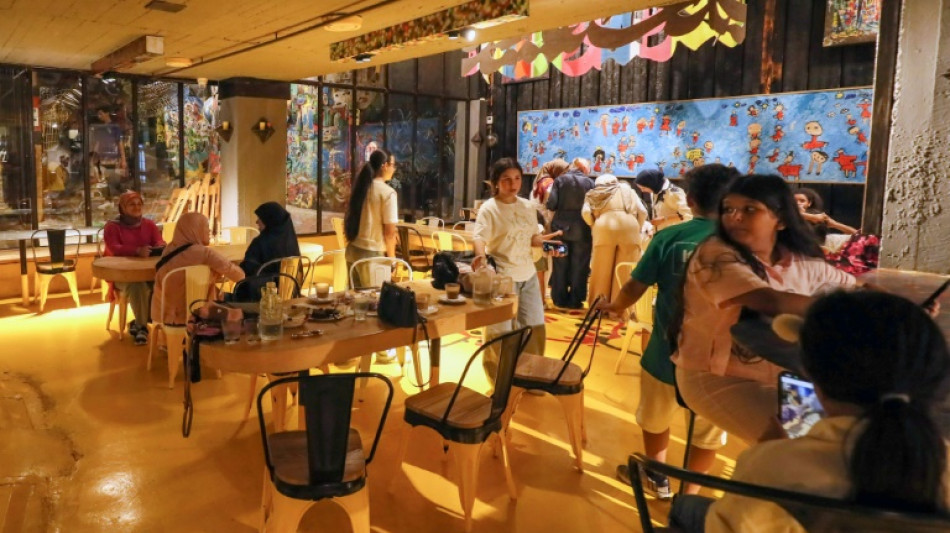
RBGPF
-2.9800


In Libya's capital, a cafe's sleek exterior gives little hint of the vibrant space inside, built entirely from recycled materials to promote sustainability in a country recovering from years of war.
Lamma, which means "gathering" or "hangout" in Arabic, has become a cultural hub for locals and other visitors, featuring an art gallery that showcases Libyan artists, and hosts events and workshops.
But its central mission, its owner said, is raising awareness of an eco-friendly lifestyle in Libya, where green initiatives are scarce as people grapple with the aftermath of a gruelling conflict.
"We use materials that were abandoned in the streets, such as rubber from tyres, wood from trees and construction waste" to build the cafe, said Louay Omran Burwais, an architect who designed and founded Lamma.
"The idea is to show people that what is thrown in the street and may seem ugly or useless is actually still valuable," he told AFP.
Libya was hurled into war after a NATO-backed uprising led to the overthrow and killing of dictator Moamer Kadhafi, followed by years of fighting between militias, mercenaries and jihadists.
Power remains split between a UN-recognised government and a rival authority in the east.
- 'New mindset' -
Behind the long, narrow door into Lamma, visitors are greeted with a kaleidoscope of colours and shapes.
The plant-covered walls contrast with a web of suspended metal scraps, alcoves and slide tunnels that children swoop down through.
"There are no places like this in Libya," said Roula Ajjawi, Lamma's art director. "We base everything on one aspect that we consider very important: recycling."
Families gather at Lamma on Thursdays, the start of the Libyan weekend, when the cafe holds art workshops for children.
Others borrow books from the venue's small library.
Burwais says his team hopes recycling and other eco-friendly practices, which remain rare, start up in Libya, which currently has no recycling facilities.
Visitors to Lamma will recognise familiar everyday objects repurposed throughout the space, Burwais said, but they will "start seeing them differently. We are here to foster a new mindset".
In Libya, the plastic, metal, and glass left from over a decade of civil war destruction are rarely, if ever, reused or recycled, Ajjawi said.
More often, they are abandoned in nature and on the streets, occasionally washed into the Mediterranean by rain and wind.
But with initiatives like Lamma, objects once destined for the landfill are transformed into works of art -- a concept now catching on with locals.
"I love this place," said Riyad Youssef, now a Lamma regular. "The food is great, the service is excellent, and I appreciate the commitment to reducing waste. Every idea here is amazing."
P.McDonald--TFWP